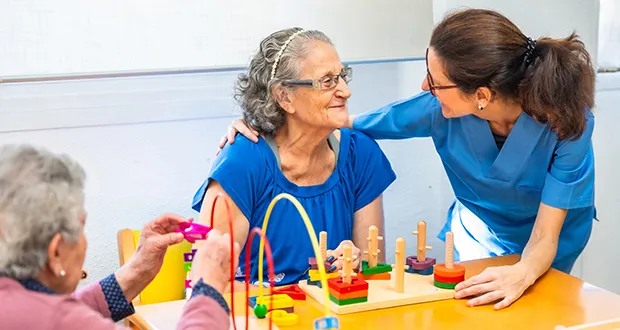Negative life factors associated with poorer mental health, brain function and a higher risk of dementia, study finds
Social exposure to negative factors such as low education, poor access to healthcare, and food insecurity in childhood, is linked to poorer mental health, brain function, and a higher risk of dementia, according to new research.
The study, featuring Irish researchers and published in Nature Communications, found that negative societal experiences in childhood can have a long-lasting impact – not only in healthy aging, but also in people living with dementia.
According to the paper’s authors, the work suggests that dementia prevention should begin in childhood.
The study involved researchers developing an assessment of social exposome – the range of social and psychosocial factors in someone’s environment and life that influence health over time.
The 319 factors assessed covered education, food insecurity, financial status, assets, healthcare access, childhood labour, socioeconomic status, childhood experiences, traumatic events, and relationships.
The assessment was carried out among more than 2,000 people in six Latin American countries, some of whom had Alzheimer’s disease, and progressive brain disease.
The researchers found that, the more negative the social factor experienced, the larger the cognitive, functional, mental and brain impairments found. Such adverse exposomes were also associated with poorer cognition in healthy ageing.
Among participants with dementia, more complex factors, such as food insecurity, financial or socioeconomic status, and access to healthcare correlated with lower cognitive and functional performance, higher mental health symptoms, and brain structure and connectivity.
Stronger links to poor brain health were found when exposures to negative social factors accumulated across a person’s life.
“The interaction between modifiable risk factors and the social exposome offers a path toward developing precision dementia prevention agendas tailored to each individual’s social exposome and risk profile,” said Joaquín Migeot, neuroscientist and Atlantic Fellow at the Global Brain Health Institute (GBHI) at Trinity College Dublin.
The research was conducted by an international team of researchers from GBHI, the Multipartner Consortium to expand dementia research in Latin America (ReDLat), and the Latin American Brain Health Institute (BrainLat).
“These results call for the development of tailored models incorporating the impact of lifespan social environments in the biological embedding of aging and dementia,” said Agustin Ibanez, professor in brain health at GBHI.
The researchers concluded that dementia prevention should not only focus on a midlife action such as controlling hypertension or diabetes. It should begin in childhood, they argue, when the foundations of brain development are laid.
Reducing food insecurity, improving education quality, and ensuring reliable access to healthcare and supportive environments in early and midlife can build brain health capital that pays off decades later, they added.
link

